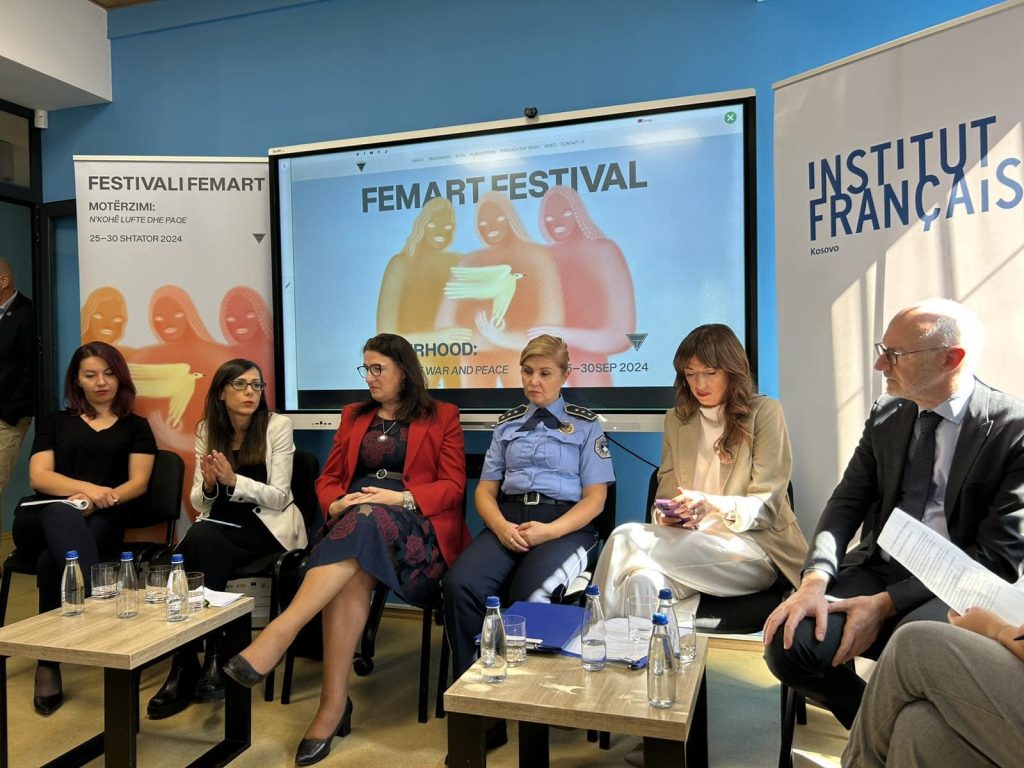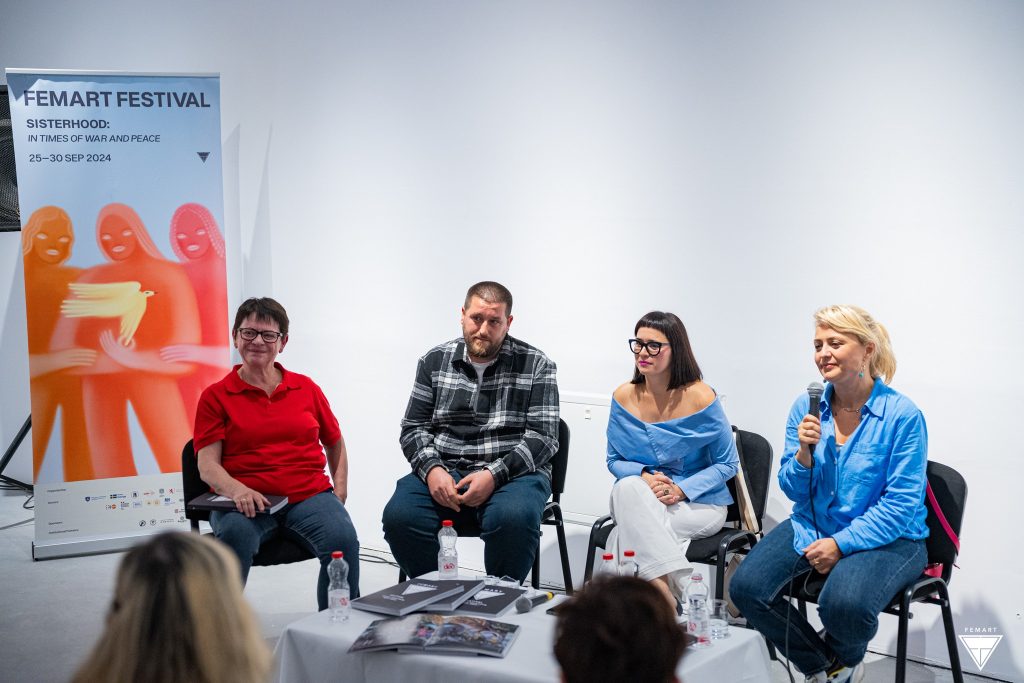The 12th edition of the FemArt Festival, a cornerstone of art and feminist activism in Kosovo, took place from September 25 to 30. This year’s event, held in Prishtina, brought together a diverse array of artists, activists, and professionals from around the world. FemArt 2024 served as a dynamic platform for exploring issues of equality, justice, and women’s empowerment through thought-provoking discussions, captivating performances, and inspiring exhibitions.
The Kosovo Women’s Network (KWN) once again demonstrated its unwavering commitment to the FemArt Festival and its mission to promote gender equality and women’s rights. KWN staff were actively involved in numerous festival events, including thought-provoking panel discussions.
Adelina Berisha, KWN’s Gender-Based Violence Program Manager, contributed her expertise to a panel focused on addressing the pressing issue of femicide in Kosovo. During the discussion, Berisha shed light on the challenges faced by women in the country and highlighted KWN’s ongoing efforts to advocate for feminist agendas through public policy and provide essential support to women across various fields.

Igballe Rogova, KWN’s Executive Director, played a pivotal role in FemArt 2024 by participating in two significant panel discussions. Drawing on her extensive experience in feminist activism, Rogova emphasized the crucial importance of societal engagement in driving structural changes towards gender equality.
On September 28, Rogova joined a distinguished panel at the exhibition and launch of the monograph “10 Years of FemArt,” contributing her insights to a celebration of the festival’s enduring impact on feminist movements in Kosovo.
“I was deeply moved when I first entered this space today. The weight of emotion was so overwhelming that I had to step outside for a moment to collect myself. But I returned… because curator Berat Bajrami honored artists who are no longer with us, such as Sevdije Ahmeti, Burbuqe Berisha, Vjosa Berisha, and Nexhmije Pagarusha, who blazed a trail for activists and artists,” Rogova said of the monograph launch and accompanying exhibition.

“On the final day of FemArt 2024, a panel moderated by Jeta Xharra brought together a distinguished group of feminist activists: Igballe Rogova, Vjosa Dobruna, Jadranka Milicević, Vjollca Krasniqi, and Danijela Stanojević. The panel reflected on ‘Feminist Activism in the 90s in the Region: Sisterhood in Times of War and Peace,’ sharing powerful stories of building bridges across national, ethnic, and personal boundaries. The panelists emphasized the enduring importance of regional networks established during this time, which continue to play a vital role in advancing feminist causes today.”
“During the panel, KWN’s Executive Director, Igballe Rogova, shared poignant stories of sisterhood and activism with Serbian women during and after the 90s. She recalled a time when author Julie Mertus first informed her that women in Serbia were protesting for peace and the rights of Albanian women. Initially, Rogova found it difficult to believe:
‘If you don’t believe me, go and see for yourself… I’ll come with you,’ Julie insisted.”
Rogova vividly described the weekly protests of Women in Black, who stood silently with signs that declared ‘Albanian women are our sisters.’ She recounted the reactions of passersby, ranging from indifference to hostility. One particularly disturbing incident involved a man who spat in the face of an activist. Rogova recalled the activist’s remarkable response:
‘When I asked her why she didn’t wipe off the spit, she replied, ‘If I had, he would have thought I noticed it, so I ignored it. He didn’t exist for me.’ We became friends, sisters, and she became my feminist mentor: Lepa Mladenovic,’ Rogova said.

In the following panel, young feminist activists from Kosovo and Serbia discussed the path that previous generations of feminist activists had paved for them. They spoke candidly about the current challenges they face in peacebuilding in everyday life and across borders.
“Jelena Memet from the Autonomous Girls’ Center shared her inspiring feminist mottos: ‘always defiant,’ ‘not in our name,’ and ‘don’t let us deceive ourselves.’ Additionally, activist sisters from Ukraine and Palestine shared the harrowing challenges women in their countries face.
FemArt once again offered a diverse array of activities, from artistic performances, films, and exhibitions to public discussions, all inspired by the overarching themes of gender equality and feminist activism. The festival’s impact on society was undeniable, as it created a space for reflection, collaboration, and raising awareness of issues affecting women and marginalized groups. Through art and numerous debates, FemArt gave voice to women’s experiences and challenges, propelling society towards a more equitable and just future.
This edition of FemArt underscored the crucial importance of continued activism, solidarity, and cooperation among artists, activists, and civil society to improve the position of women and advance their rights.”







